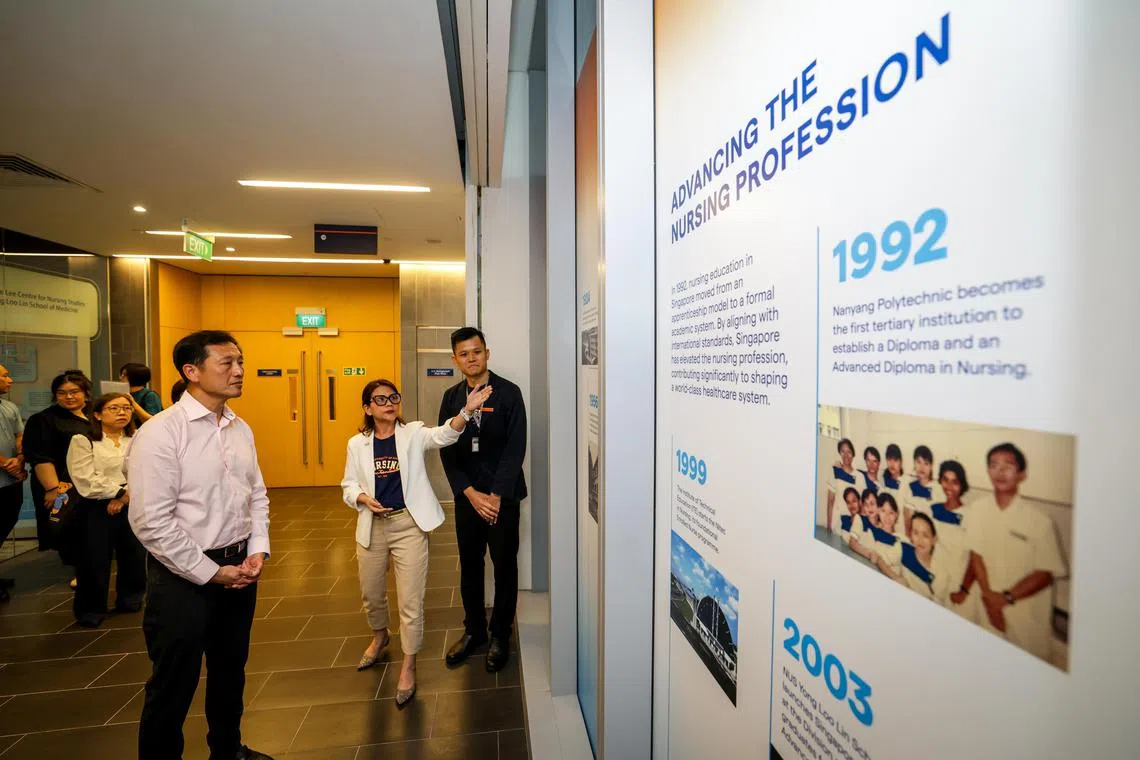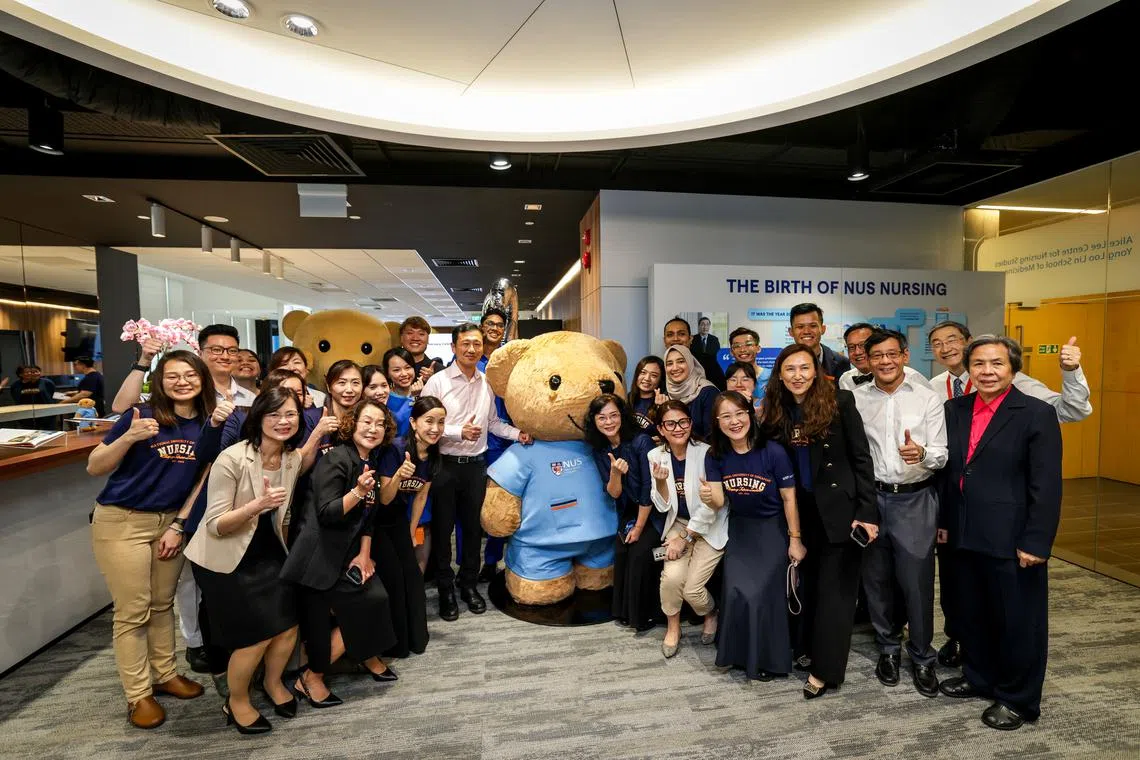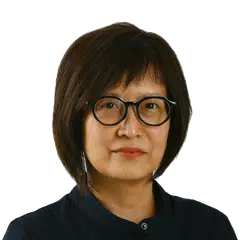NUS launches S’pore’s first nursing practice doctorate to meet evolving healthcare needs
Sign up now: Get ST's newsletters delivered to your inbox

Minister for Health and Coordinating Minister for Social Policies Ong Ye Kung at the launch of the Doctor of Nursing Practice on Aug 1.
PHOTO: LIANHE ZAOBAO
Follow topic:
- NUS launched Singapore's first Doctor of Nursing Practice (DNP), a part-time programme to empower nurses as leaders in healthcare.
- Three new Master's programmes in community health, critical care, and infection control were also introduced to enhance expertise.
- These programmes aim to attract, retain, and elevate nurses, equipping them for evolving roles and healthcare challenges.
AI generated
SINGAPORE – To prepare nurses for leadership roles in tackling the complex healthcare challenges of a fast-ageing nation, the National University of Singapore (NUS) has launched Singapore’s first doctorate in nursing practice.
The Doctor of Nursing Practice is a two-year, part-time programme that empowers nurses to lead system-wide improvements, influence health policy and enhance care delivery while continuing their clinical work, said Mr Ong Ye Kung, Minister for Health and Coordinating Minister for Social Policies, at the launch of the programme on Aug 1.
It comes as healthcare needs evolve, and it is crucial to attract and retain nurses for the growing demands in Singapore amid a global nursing shortage.
“The requirements of nurses are still changing and (they are) changing even more rapidly because we have an ageing population, which is giving rise to a different patient mix,” said Mr Ong.
“Patients get older, they increasingly require less episodic care, but more coordinated and consolidated care to better manage multiple and complex conditions.”
NUS also introduced three new master’s programmes designed for working nurses to enhance their expertise in community health, critical care and infection control.
The new programmes are offered by NUS’ Alice Lee Centre for Nursing Studies (NUS Nursing), which held its 20th anniversary celebration in conjunction with Nurses’ Day on Aug 1.
Professor Liaw Sok Ying, head of NUS Nursing, said the new programmes are a means to attract and retain nurses and elevate the profession in Singapore.
Increasingly, nurses are taking on leadership roles, not only in management but also in specialised clinical areas that address the needs of Singapore’s healthcare system, she added.
The doctorate programme’s first cohort of 16 students comprise an American nurse of Filipino ethnicity and 15 nurses working in Singapore in community and acute care settings. Seven of them are advanced practice nurses (APNs).

The Doctor of Nursing Practice is a two-year part-time programme that empowers nurses to lead system-wide improvements, influence health policy, and enhance care delivery while continuing their clinical work.
PHOTO: LIANHE ZAOBAO
They start classes in August and can continue to work while pursuing their doctorate.
Among the maiden batch of students are Ms Katherine Leong, deputy director of nursing at National University Hospital and nursing lead at Tengah General and Community Hospital; and Ms Tang Ping Sin, an APN in the palliative ward of St Luke’s Hospital.
Both Ms Leong, 54, and Ms Tang, 44, said they have been eyeing programmes to advance their learning so as to be better leaders.
For Ms Leong, the doctorate programme offers a package of topics aimed at advancing the nursing profession, including financial cost and analysis, but importantly, she can pursue it on a part-time basis. Otherwise, she would not be able to take it up as work comes first, she said.
Emphasising a similar point in his speech, Mr Ong said the future of nursing training is about flexible, modular, competency-based stackable training that equips the workforce to quickly respond to changing needs and adapt to a different healthcare landscape, while still maintaining high standards.
Since NUS Nursing started in 2005, it has trained over 3,500 nursing professionals, including 500 APNs.
To mark its 20th anniversary, the centre launched the Nursing Education Gallery to showcase the evolution, milestones and impact of nursing education and practice in Singapore over the past two decades.
Associate Professor Zhou Wentao, NUS Nursing’s deputy head (postgraduate programmes), said nursing education is evolving to meet healthcare demands, as nurses are no longer just caregivers but also leaders in leading innovation and change.


